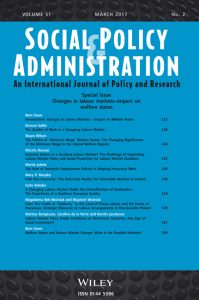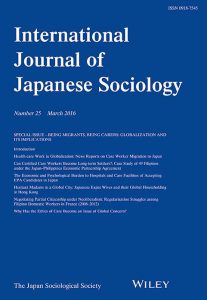Stress Sweat and Stress about Sweat
One way that capitalism creates consumers is by convincing us that our identity is developed and demonstrated through the items we purchase. Your new clothes, shoes, house, car, and jewelry tell the world who you are and what you are worth. Most importantly, these products can fix our flaws (which, we are told, are many). With each new purchase, we think we are improving ourselves. But if we ever felt complete, fixed, perfect, we might stop buying, so capitalists must continue to create new problems in need of solutions (Gwen Sharp has a great, related post at SocImages).
The body has long been a site of capitalist pathologization. We are taught that our bodies, often women’s bodies, require manipulation or control, and that medicines and hygiene products are our best options. This is readily evident in a recent ad campaign for Secret’s “stress sweat” line (view here). According to Secret, all sweating is embarrassing; it is a problem requiring a solution. It is especially embarrassing for girls and women, Secret’s target consumer base. The site links to WebMD, where girls can rate their symptoms to determine whether their sweat is “abnormal,” and ultimately, how mortified they ought to be when sweat happens. But stress sweat is the worst smelling sweat of all, Secret tells us. According to their website, there is a scientific explanation for its extremely foul odor: it emerges from different glands than exercise/activity induced sweat, with different bacteria to cause more odors (you can watch a “cute” video on the “science” of stress sweat, produced by Secret’s parent company, Proctor & Gamble, here). In stressful situations, girls and women are told, “Don’t focus on your speech/date/test/presentation/etc. Worry about your armpits and B.O.” Thanks a lot, Secret.
So, Secret begins by telling us that we have a problem—we are stinky, wet beasts. We must buy Secret deodorant/antiperspirant and keep our natural scent “secret.” According to their site, a sweaty daughter “may isolate herself, avoiding activities she previously enjoyed, in an effort to prevent embarrassment and teasing, so it’s really important to give her emotional support.” Rather than encouraging your daughter to find self-confidence internally, mothers are told that the best course of action is to take her shopping. Secret goes further; not only will the new deodorant give her confidence, it will allow her to express her true self: “With 10 unique scents to choose from, she’ll have fun picking the sparkly one that fits her personality.”
So we see that Secret uses the tried-and-true capitalist tactic of selling insecurity; but is this gendered? Secret is a producer of products for women. They wrap their deodorants in pastel pinks and purples, fill them with flowery or fruity scents and name them Ohlala Lavender and Cocoa Butter Kiss. Secret teaches women that their natural smells and bodily processes are so gross that they require the daily application of carcinogenic chemicals (see also Lisa Wade’s post on similar issues with douching). Part of what makes the new Secret campaign so insidious, in my opinion, is that it masquerades as empowerment. For example, one variety of Secret Clinical Strength deodorant is called “Mean Stinks”—when consumers purchase this deodorant stick, Secret donates a bit of money to organizations fighting girl-on-girl bullying. And yet, the ads themselves encourage girls to compete with and compare themselves to one another. A teen girl is now pushed to ask herself, “Do I smell worse than her? What about her?” This particular line of products pressures women to conform to the social expectation that women be soft, pretty, sweet-smelling creatures regardless of activity or context—we’re supposed to glow, remember? Even female athletes are encouraged to worry about sweating during practices and games but don’t worry, their cure is Secret’s Clinical Strength Sport stick. (One could also look at the gendered pressures conveyed in deodorant/hygiene ads for men. My guess is you’d find a lot of normative expectations about heterosexuality and muscularity.)
As I finish writing this post, I feel I must admit something—I’m sweating. It’s a bit humid in here, the AC could be on higher, I could have chosen an iced coffee. And as I read about “normal” vs. “abnormal” sweating, a small part of my mind whispers, “Is my sweating normal? Can everyone tell?” None of us is exempt from the pressure. But neither are we powerless.
Further Reading
Moore, Sarah E. 2008. Gender and the ‘New Paradigm’ of Health. Sociology Compass 2(1): 268-280.
(*These would be good references for those interested in the dynamics of hygiene/health ads for men.)
Why Capitalists Want To Sell You Deodorant.
(*I’m not aware of the original author, but this piece circulated the internet, and would be a great handout for students during a discussion of bodies and capitalism)







Wonderful article. I’d like to add that the products featured above also don’t work any more effectively than their regular ones — “Clinical” is just a way for them to charge $10 a stick vs $3.
They also sell a scent that is called “Fresh” that is made with Febreeze. That’s right, even natural scents are no longer good enough — you need to smell like cleaning products to really smell great!
Great article! Critical and well- written Thanks for sharing the thruth with us!
Thanks for sharing the thruth with us!
This society needs people like this writer. I wish those who are so Internet savvy start a project for “at least one woman senator for each State”.
I am an old man originally from a small island on the side of the globe. (My mother was a woman!). Recently, I got to read a book on this island written in mid 1600s
http://www.gutenberg.org/files/14346/14346-h/14346-h.htm
(search ‘Nothing so common as’ to get a taste)
I ask you to read this book keeping in mind it was written by a person with a devout faith and the people he describes were people with no religion. Notice how free and equal the women were then, before religions that sprung up in the desert spread with the power of sword reached there and even by little reduced the power of woman (civilization!)
This is yet another example of junk-science and/or pseudo-science used to hock products to gullible people at double or triple the normal price.
I saw the ‘Secret’ deodorant commercial and heard their claim that “stress sweat smells worse than normal sweat”. Sounded sketchy, so I went online looking for the study to back this claim. Nothing to be found except a few articles… all leading back to (as if you couldn’t guess) Proctor & Gamble or Secret.
This reminds me of those stupid games they claim make you ‘smarter’ (and then charge you a hefty monthly fee to use). Yet all the actual studies say that they don;t actually make you “smarter”, but can build new neural pathways (as can ANY new activity). In fact, they are no more effective than doing crossword puzzles or a myriad of other activities (which are all FREE).